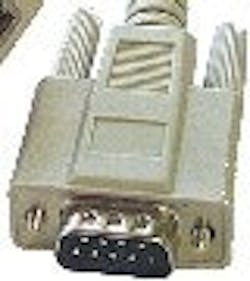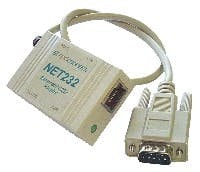Get on the network in 30 minutes
|
T |
he number of industrial applications that use Ethernet as a basis for their design is indisputably growing. Ethernet offers the familiar ring of the office world and the ability to connect to computers and devices worldwide through the Internet. Now that more and more companies are deciding to gather and analyze factory floor data to help make high-level decisions, Ethernet makes sense as the foundation on which to transmit that data. Industrial Ethernet is a phrase that is being used to describe industrial versions of the Ethernet products that have to survive in an industrial environment.
In the language of Ethernet there are the important higher-level protocols such as TCP/IP and UDP, which are the basis for the industrial protocols. Modbus RTU/ASCII, DeviceNet and Profibus have been the primary, serial-based industrial networks in the factory over the past five years. To keep up with the traction that Industrial Ethernet has gained, each of these networks has its own Ethernet version, namely Modbus TCP, EtherNet/IP and Profinet, respectively.
A new family of products from Grid Connect is aimed at giving its users an easy transition from the existing serial RS-232 connections to the wide open Industrial Ethernet world of Modbus TCP and EtherNet/IP. A Profinet version will follow later in the year.


